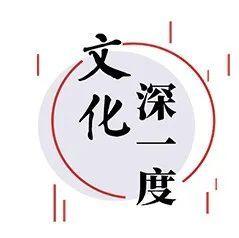
Wen | Fan Cheng
The 27th World Book Day, which just passed, really made "books" a sense of existence on social media. Of course, the "book" here is no longer just a paper book, but also an e-book, a reading APP, an audio-visual APP, and so on. Many people posted their reading lists and forwarded various reading activities. This kind of online "cloud book club" is actually a typical scene in the era of pan-reading.
Recently, the "National Reading Insight 2022" report released by an institution shows that nearly 60% of users with reading habits read more than 3 days a week; from the perspective of reading time, nearly 30% of users maintain reading for more than 2 hours a day; and in this part of the reading population, the post-90s and post-00s account for 30.3% and 23.3% respectively. It can be seen from this that it is biased to say that modern young people do not like to read.
However, some people also ask, is reading online articles, brushing the public account articles of the circle of friends, listening to audio programs, etc., counted as reading? I am afraid that this question cannot be generalized.
In recent years, with the rise of smartphones, many people have spent more and more time on them, and some people also regard them as a daily reading tool. In general, this "perception" is largely valid. The so-called reading is nothing more than a carrier that inputs information and knowledge into one's own brain. The text on the paper can be, the audio and video on the mobile phone can also be, but it is more abundant, three-dimensional and intuitive than the simple text, and it also reduces the reading threshold.
Audio-visual reading is not what some people think is useless. I like to browse some popular science accounts on the short video platform, often involving physics, chemistry, biology, etc., and listen to bloggers tell the stories and achievements of scientists in various fields. As a liberal arts student, natural science is my weakness and an area that I don't take the initiative to contact on weekdays, but short videos have opened a window for me. Without this window, it would be difficult for me to hold on to a science book and read it.
These new types of reading do not mean invalid reading, and invalid reading may also appear on text reading. Many people may have such a feeling: when reading a paper book, the eyes are clearly browsing the text, the brain has wandered out of the sky, and the probability of wandering is probably not lower than browsing the video in the mobile phone. Moreover, fragmentation also exists: a book reads a dozen or even two or three pages, throws it aside, and the next time you pick it up, you don't know when.
Today's young people are generally busier, and the busier they are, the more "time anxiety" they have. The report also shows that respondents in first-tier and new first-tier cities prefer to read during commute time, and most of them prefer to read books while taking transportation such as subways, buses or planes. Modern technology has given us many new application scenarios, and the same is true for reading. The times may not be the best, but they are the most appropriate.
Not only is it a commute, but when I cook, I also habitually listen to books with headphones. In my opinion, the daily cooking time is still relatively long, with an average of one or two hours a day, and if these precious time is simply spent on "eating", it is inevitable to waste. At this time, letting the ear replace the eye to listen to the book is not necessarily a superimposed harvest.
Of course, we still have to fight fragmented reading. Fragmented reading is criticized for its inability to form a systematic intake of knowledge, and incomplete access is sometimes harmful. For example, for a classic masterpiece, if you just read the "speed reading version" or the so-called "book breaking" cut by others, it is easy to be misled, receiving local, other-chewed information, thus stifling personal independent thinking and multiple opinions.
Reading is irreplaceable by others. I have also always believed that no kind of physical reading is invalid or useless. Nor is it necessary to pursue absolute validity or usefulness, otherwise it will fall into the trap of utilitarian reading. Every time you read, there will always be a role in some inadvertent moment. Please believe in reading, believe in time, there is a piece of heaven in the book.
Text: Fan Cheng
Image: Network
Column moderator: Zhang Yongqun
Editor-in-charge: Wang Zimo
Editors: Zhang Yongqun, Zhu Xiaofan, Chang Ying